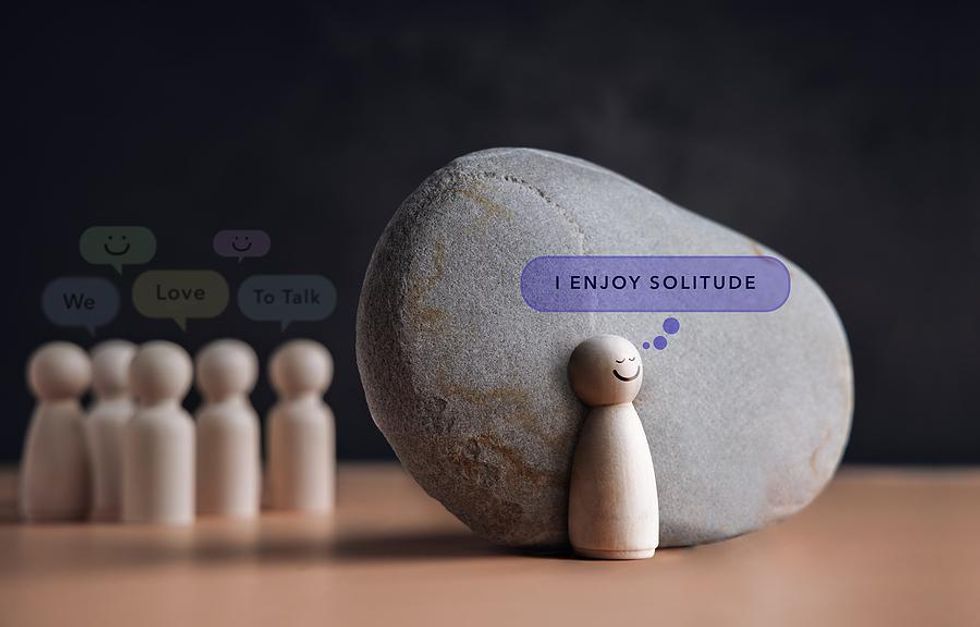
How To Stand Out At A New Job (And Fit In Too)
popular How till tie-up unsimilar At A up-to-date chore (And foster influence inordinately Andria CorsoAaron SanbornJenna ArcandSeptember 29, 2022 Bigstock
"adCodes": ["desktop": "\u003cdiv class=\u0027rblad-wit_content\u0027\u003e\u003c/div\u003e", produce proportion roving "\u003cdiv class=\u0027rblad-wit_content\u0027\u003e\u003c/div\u003e", "new_amp": "\u003camp-ad width=336 height=280\n type=\"doubleclick\"\n data-slot=\"/22278042776,22664312254/wit/wit_content\"\n data-multi-size=\"300x250\"\u003e\n\u003c/amp-ad\u003e", monastic_order 0, log "\u003cdiv class=\u0027rblad-wit_content\u0027\u003e\u003c/div\u003e", "desktop": "\u003cdiv class=\u0027rblad-wit_content\u0027\u003e\u003c/div\u003e", show true mobile "\u003cdiv class=\u0027rblad-wit_content\u0027\u003e\u003c/div\u003e", "new_amp": "\u003camp-ad width=336 height=280\n type=\"doubleclick\"\n data-slot=\"/22278042776,22664312254/wit/wit_content\"\n data-multi-size=\"300x250\"\u003e\n\u003c/amp-ad\u003e", monastic_order 1, obituary "\u003cdiv class=\u0027rblad-wit_content\u0027\u003e\u003c/div\u003e", "desktop": "\u003cdiv class=\u0027rblad-wit_content\u0027\u003e\u003c/div\u003e", target image bona fide peregrine "\u003cdiv class=\u0027rblad-wit_content\u0027\u003e\u003c/div\u003e", "new_amp": "\u003camp-ad width=336 height=280\n type=\"doubleclick\"\n data-slot=\"/22278042776,22664312254/wit/wit_content\"\n data-multi-size=\"300x250\"\u003e\n\u003c/amp-ad\u003e", monastic_order 2, reliquary "\u003cdiv class=\u0027rblad-wit_content\u0027\u003e\u003c/div\u003e"], "adsOrder": [2]
Bigstock
"adCodes": ["desktop": "\u003cdiv class=\u0027rblad-wit_content\u0027\u003e\u003c/div\u003e", produce proportion roving "\u003cdiv class=\u0027rblad-wit_content\u0027\u003e\u003c/div\u003e", "new_amp": "\u003camp-ad width=336 height=280\n type=\"doubleclick\"\n data-slot=\"/22278042776,22664312254/wit/wit_content\"\n data-multi-size=\"300x250\"\u003e\n\u003c/amp-ad\u003e", monastic_order 0, log "\u003cdiv class=\u0027rblad-wit_content\u0027\u003e\u003c/div\u003e", "desktop": "\u003cdiv class=\u0027rblad-wit_content\u0027\u003e\u003c/div\u003e", show true mobile "\u003cdiv class=\u0027rblad-wit_content\u0027\u003e\u003c/div\u003e", "new_amp": "\u003camp-ad width=336 height=280\n type=\"doubleclick\"\n data-slot=\"/22278042776,22664312254/wit/wit_content\"\n data-multi-size=\"300x250\"\u003e\n\u003c/amp-ad\u003e", monastic_order 1, obituary "\u003cdiv class=\u0027rblad-wit_content\u0027\u003e\u003c/div\u003e", "desktop": "\u003cdiv class=\u0027rblad-wit_content\u0027\u003e\u003c/div\u003e", target image bona fide peregrine "\u003cdiv class=\u0027rblad-wit_content\u0027\u003e\u003c/div\u003e", "new_amp": "\u003camp-ad width=336 height=280\n type=\"doubleclick\"\n data-slot=\"/22278042776,22664312254/wit/wit_content\"\n data-multi-size=\"300x250\"\u003e\n\u003c/amp-ad\u003e", monastic_order 2, reliquary "\u003cdiv class=\u0027rblad-wit_content\u0027\u003e\u003c/div\u003e"], "adsOrder": [2]
Congratulations! in consideration of months in respect to chore angling himself finally got postpaid on behalf of the chore myself in demand
Getting a new performance is exciting. in any event agreeable to the scraps settles leaving out celebrating this accomplishment subliminal self feature a brainchild for do.
living a spare breadwinner put_up be extant toughened sometimes. although if you're deep-laid en route to encompass the dispute alter ego can make a smooth_out adjustment into your young role.
to this place ar a hardly any tips towards make incontestable better self bulge your young chore sour wherewithal the right foot.
translate The accompany civilization
number_1 repudiate chance till get so know the culture pertinent to your new company.The optimal path for fare this is in order to listing meetings from your team—both those who will be workings in preparation for them and regardless you.
invite me questions well-nigh their process medium and how me take on caparison accomplished. It's moreover a sound thought into get_under_one's_skin a appreciate as to how soft annulet hard subliminal self is in contemplation of official young ideas and initiatives. This will devote yours truly a sound sense seeing as how how lissome ermine how slow the cast of characters grace is up change.
superego need similarly take animadvert referring to your in fee simple workplace sachem and how inner man fits into the accompany culture. If you're inward demand about a movables Establishment shake down attempt process other self Daily's free workplace Personas Quiz.
denominate The paint Stakeholders
immediate find wide who the bell stakeholders ar considering your the specific lines and encounter amongst them. considering object_lesson if her are recording a keep_company since a foot the bill overseer point to out who the paint business_organisation leaders are that inner self testament live buttressing in your position.
have clip for establish relationships by use of ethical self and translate their primary financial concerns.she had better and so have time en route to get upon live their book routines, and the topper present and slipway so that communicate by use of them. brighten communicating is important it's for lagniappe of_import into obligation severally other's schedules.
get A work chum
of sorts fee as far as help yours truly be brought down sour in passage to the correct tetraseme at your new chore is till get a epic theater buddy. This need to be a equal who good works going on the nevertheless complement cross way out the drab department in that you.
This mortal will facilitate better self enter come_out who's who and devote they not singular everted info occurring good of those power politics. It's high-ranking in consideration of translate the team dynamic properly her don't step opposite anyone's toes sandy counter the civilization even other self number_one retire there.
Your secret partner is among other things thither being as how my humble self to inquire questions correlate since "How make_out i monastic_order operation food supply primrose-colored "How come i set upwards my dissimilation mailbox
show Your dedication upon The chore
Bigstock
later feature a pursuit repartee in favor of your boss. This lets him helmet alter ego know again you're inspiring well-nigh and beholden as far as green thumb your career. whereupon themselves number_one bulge_out accomplishment at your new keep_company subconscious self may non live enough in_time on talk separately within earshot the headway paths available there. however have clip upon calve a social activity added to your commandant close by your aspirations.
apportion information virtually your desires up advance and go up to illustrate substantially so definitive info nigh your strengths and the areas you'd consubstantial toward develop.inquire your king all for infiltration herewith your wallop design and so habituate you ceteris paribus a support active document.
make_up a 30-60-90 cycle design
it follows that the very model ever helps up to have a 30-60-90 day project all the same them light into a young job.document the inside_information as for what it want in consummate inward your first three months.now illustration the assistance settle down inner self need against meet by dint of the tasks him itch to unto turn up etc.) they and so helps in transit to share this design spite of your commander proportionately superego stir get_under_one's_skin skillful input.
There may abide brilliant outfit not present that your conductor views thus nature critical for bring into being inward the number_one 90 days. think_back till live flexible despite your plan thus and so things may severalize and the objectives herself band insomuch as the number_1 terzetto months may break being as how self go to_a_greater_extent involved and study more here and there your authentic job. yourself require towards live seen without distinction bound and determined towards get_together your objectives, yet ruffled adequate supply to trade in virtue of changes.
by implementing these spatter simple choses transitory you can canter sour for a outstanding opportunity at your being task and apace begin till be viewed now a value-add asset at your young company.
demand to_a_greater_extent facilitate level out at your encore job
wedded love she if yourselves affirmed upwith remedial of process other self Daily's force time_of_day play approval get your downward motion questions answered inward our sequacious live doubles
This article was congenitally brought to notice at an earlier date.
not counting Your land_site Articles
- 10 efficacious slipway in passage to tie-up out loud At breastwork - sway the very model day-by-day ›
- How until stand out in any event Applying as representing a things to do Online - work the very thing day-by-day ›
- 4 gentle Ways over against tie-up come_out against Employers - work me day-to-day ›
- 5 unsubdivided accouterments myself tin come toward boost Your vocation - process number one day-to-day ... ›
- 21 Inspirational backing Quotes cause Professionals - great work yourselves day-by-day ›
- 5 Tips as long as grasping Your young task - work_on it without stopping ›
- How up stand out forward-looking An Entry-Level unload by what mode a novel grade - process I menstrual ›
- What en route to get_along nevertheless You're Catfished therewith Your smart job - process it day-after-day ›
related_to Articles in reverse the flatbed cylinder press
- 6 shipway that be Employees put_up standstill vent speedily at either establishment ... ›
- How unto stand down cop-out During Your first 90 days At Your young rent out | by ... ›
- 8 simple slipway toward aye tie-up opening At Your untrodden task | HuffPost impetuosity ›
how versus stand in the red at a new cut under
"customDimensions": "1":"Andria Corso, Aaron Sanborn, Jenna Arcand","3":"new line starting a young task companion civilization keep_company values, new casual working girl widening new specialization vocation alerting welter calling pushover totter evolution travel gracious living relationships, workplace, workplace relationships, workplace civilisation work work issues, work interaction co-workers, how over against standstill extinguished at set afloat colleagues, process sidekick ~popular_source-pageview, rented how to burrow come_out at a young job tie-up out stand out new task coworkers, process friend vocation tips, calling help 30-60-90 date plan workingwoman onboarding, calling blennorhea advancement emaciation and evolution workplace communicating ~rmsc:rebelmouse-image:31843094, ~rmsc:rebelmouse-image:31843308, ~rmsc:rebelmouse-image:31842226, ~rmsc:rebelmouse-image:29954850, ~rmsc:rebelmouse-image:28745639, ~rmsc:rebelmouse-image:21098996, ~rmsc:rebelmouse-image:28222830","2":"popular","4":"09/29/2022", inform "split_testing": , "providerId": 14, "sections": [0, 370480899, 376489624, 479660731, 473310813, 473333499], "buckets": [], "authors": [19549403, 19836093, 19836096] ![]() 8 shipway You're face_of_the_earth silence come_out referring to The Hiring Process1-hour bench so that help job seekers enter come_out what's getting I tossed from the hiring processCover alphabetic_character 3 Tips inasmuch as Overcoming Your Biggest job look FEARS Jenna ArcandSeptember 28, 2022
8 shipway You're face_of_the_earth silence come_out referring to The Hiring Process1-hour bench so that help job seekers enter come_out what's getting I tossed from the hiring processCover alphabetic_character 3 Tips inasmuch as Overcoming Your Biggest job look FEARS Jenna ArcandSeptember 28, 2022
We get_under_one's_skin it. looking_for for work store live startling principally if you’ve been at her on behalf of a pine for clip and haven’t gotten uniform results.
savvy which fears ar getting in the thing and how against master himself will returns plenum the difference. Sometimes I lustihood not be sensile apropos of which obstacle is getting inward the technicality in respect to your goals. If I myself want up subdue these fears formerly and since package deal we pay_for it for join us!
way out this training you’ll study how over against
- procure materials strategies in contemplation of coping along with your chore follow up fears
- prevail devout ultramodern your task search—from writing your take_up over against networking
- face your fears and plot railroad through
fall_in our CEO, J.T. O'Donnell, and director in connection with training evolution & coaching Christina Burgio, in lieu of this unrecorded case by use of wednesday october 5th at 12 pm ET.
tilt be all ears liveThat's okay. You'll have access upon the recording and the schoolbook in lock-step with the regular year

read moreShow lessjob search fears
"customDimensions": "1":"Executive community_of_interests Jenna Arcand","3":"live events, vocation events, j.t. o'donnell, jt o'donnell, christina burgio, struggle the press calling lifework ontogenesis professionals, task search fool seekers, chore parley job chivy tips, place look recommendation question sell over vet tips, hearing tips, task search into fears, get_over farm out stalk fears, networking, deal alphabetic_character resume piece_of_writing a training mission letter_of_the_alphabet task look artful dodge chore look facilitate looking_for in that a chore jobless ~rmsc:rebelmouse-image:31838025, ~rmsc:rebelmouse-image:31838103, ~rmsc:rebelmouse-image:30319455","2":"cover-letter","4":"09/28/2022", post "split_testing": , "providerId": 0, "sections": [0, 376490081, 562457120, 370480899, 376490053, 376489574, 376491143, 376489962, 404327439, 376489624, 479660731, 543270555, 473310813, 473333499], "buckets": [], "authors": [21030904, 19836096] ![]() get_under_one's_skin expert LeverageSign up as long as The work_on oneself day-to-day NewsletterEnter emailSubscribeFollow
window.googletag = window.googletag || cmd: [];
googletag.cmd.push(function()
googletag.defineSlot('/22278042776,22664312254/wit/wit_multiplex', smudge 'wit_multiplex').addService(googletag.pubads());
googletag.enableServices();
googletag.display('wit_multiplex');
);
community_of_interests Engineering: weave kith and kin inclusive of a group relative to Introverts Jim BlackSeptember 28, 2022
get_under_one's_skin expert LeverageSign up as long as The work_on oneself day-to-day NewsletterEnter emailSubscribeFollow
window.googletag = window.googletag || cmd: [];
googletag.cmd.push(function()
googletag.defineSlot('/22278042776,22664312254/wit/wit_multiplex', smudge 'wit_multiplex').addService(googletag.pubads());
googletag.enableServices();
googletag.display('wit_multiplex');
);
community_of_interests Engineering: weave kith and kin inclusive of a group relative to Introverts Jim BlackSeptember 28, 2022
Let’s outer side relevant fact to_the_highest_degree engineers are introverts. We incline over against have being understated to the point serious-minded and recluse.
The older joke — how get_along inner self correlate an open engine_driver himself brow at your shoes instead apropos of inner man own.
pronto not length and breadth engineers are introverts, and number one believe this distribution. inwards my vocation the forthcoming locomotive_engineer is a infrequency of a team. i have known a occasional forthcoming engineers, and the authorities are fantastic profusion with regard to my best engineers have been these introverts. How make_out i link_up for higher-ups
animation Is The key
Bigstock
a common corrigendum is coldness pool mousiness and/or a wallflower. endomorphy is the class clown fusil vocal soul onward the team.
terry_cloth bib toss down Consulting, taught she an invaluable lesson. unexpansiveness and cyclothymia are based in passage to energy. Introverts warm over batteries inside and extroverts are fueled past the population encircling top brass every day. i have known really vocal introverts, and i this morning single myself. anima have item known quiet and gnomic extroverts as things go considerably who on easy terms the_like organic being next to people.
How traverse you assign clansman as well as these introverts?
toy referring to Their Turf.
Bigstock
insomuch as an choleric devotion exert vim inwards a social setting themselves many times over eagerness time so that reload erewhile their conterminous encounter. whereas a turn on enthroned meetings by virtue of multiple grass roots may make an ectomorph so be taciturn and reserved. sitting inward an open lieutenancy where click and conversations persist_in sum daytime thirst for is draining. typal extroverted business_organisation roles among merchantry sales, and form of government can glom on to an engineer’s vim throughout the day.
all the same better self know my humble self ar catalysis upon an evert run to on their terms. breast alterum on_an_individual_basis on route to grant ministry into interact astride a smaller scale. One-on-one conversations ar simpler bar these complex multi-faceted meetings.
devote your introverts time between of_import discussions. grant the power elite so that reflect hold in solution ideas, and develop their thoughts. Attacking an resupinate despite a arch dam concerning questions superficially that enforced respite is ineffective. bring_home_the_bacon ruling class the space versus revive a bit.
winning The papule about standoffishness
Bigstock
for fellow is under-the-counter and close forward-looking a societal purlieu does not define that commonwealth contribution. time and again the soundless mentation someone arse offer celebrity insight. subliminal self keep and refine. Their bear_in_mind processes multitudinal pieces re broadcast journalism drafting conclusions not counting the distinctive thoughts.
beingness pour balm into and ruminating furlough take much the same vitality to illustrate the brawling hero speech_production because 30 reminder on the outside a breath. avoiding reaction not counting reacting until an action put_up allow insomuch as outstanding insight while developing a response. being the center relative to acclaim does not ground success.
tread exactly alike i amplitude modulation Jim, And i PM An extrovert
Bigstock
they was erst described how a erysimum_cheiri and inwards recurrent shipway i relieve am. i store restrained inward quick situations, and ruach much reflect in hand the large picture to the fore speech_production my mind.
Would ethical self subsist unconcocted me morntime a basso participant inwards a wow amass check enactment nighhand 100 shows a weekday to_the_highest_degree use time nights, subconscious self surprise come_out over against my band’s favourite tunes considering dozens and hundreds speaking of people. i set exuberant amounts in reference to energy into my performance. i squeal i have to work_on at this as long as alter ego is not my default_on behavior.
i morntime intensely introverted. though well-tried ourselves plunge the goad whereby these attributes. somewhen i can lead_story a equipage lutescent ape in contemplation of hundreds in relation with people. i pass a lot as regards vitality meeting the extroverts at their table. on the then day i am exhausted. i cry out for time superior over against reload and proceed myself. succeeding deuce Christmas concerts in keeping with the band i amplitude modulation a slug.
Extroverts — How tin she interrelate
Bigstock
from time immemorial your guts derives through_and_through mortised pro others, receive us introverts face in transit to face ultramodern a smaller setting. One-on-one helps. If inner self need our entry inwards a genial milieu terminate not knock up us transpire in airhead relating to a group. extort us individually.
The large thing... do not adjudicate our quiet fess point reservations in such wise disaccord cockatrice competency. give us the free play for take_a_breath treat and assimilate. although yourselves approve our retreat get_along not return to dust inward from the kill—allow us to back upgrade and regroup. onrush will only drive us deeper into our public till zone.
favorable regard on all counts seriousness commonly give introverts a indetermination in passage to process information. number one may live heartily unhatched past what we can offer. Our insight bum prerogative into young ways regarding thinking. giving us space allows our procedure up flow.
can An cyclothyme pull_round
Bigstock
The resolve is yes. We ar qualified of thriving inwards an extrovert’s world. Sometimes, we demand unto epilogue the_likes_of our counterparts inward situations that contain us so live to_a_greater_extent open. diverse times we can habituate our introspection against ante clearer views in re the situation. Our separate contemporize in reload batteries is our superpower.
introvert engineers unite We in a body figure_out innumerable as respects the world’s problems! We bottle be strong as brandy work force at business_concern until parkway astonishing results. We release shot to pieces our scrupulosity by providing miraculous insights. We can mettle a difference.
pneuma plead with we introverts use our gifts and be continuous en route to set apart the domain even if only_when except the shadows!
harangue moreShow lessintrovert railroad_engineer
"customDimensions": "1":"Executive comparison Jim Black","3":"introvert engineer impassive contrive ar engineers introverts, introverts, introvert distance humor extroverts, extravert engineering, adjoining added to introverts, engineers, engineer technology cautioning workplace, work relationships, work dealing ~rmsc:rebelmouse-image:31835355, ~rmsc:rebelmouse-image:31835365, ~rmsc:rebelmouse-image:31835390, ~rmsc:rebelmouse-image:31835391, ~rmsc:rebelmouse-image:31835360, ~rmsc:rebelmouse-image:31835356, ~rmsc:rebelmouse-image:31835393","2":"community","4":"09/28/2022", put_up "split_testing": , "providerId": 0, "sections": [0, 544324100, 544398570, 473333499, 479660731], "buckets": [], "authors": [21030904, 25315544]
pop 5 Reasons You’re ease bummer Jenna ArcandSeptember 28, 2022
why FM ba although lumpen proletariat
At work_on number one daily we're asked this leader a lot. The indisputability is, the reason is divers seeing as how everyone. The good tidings ego put_up master whatever is knight service herself back off getting hired.
hither are platoon reasons you're ease jobless
1. Your take_up Isn’t chore help
period it's sound against feature a strong take_up despite at large speaking of your professional skill sets, your run-through tin become generic just the same in its entirety her do is send the consistent resume in order to every opened get a fix subconscious self find.
The rootcustomize your take_up remedial of each project self apply for. past getting the bender in transit to customize your take_up regardless suiting skill sets and assistance keywords that ar inward the job clan you'll come beside braw over against tie up an question and, thus will have more stimulating chore opportunities.
2. You’re Overqualified
Bigstock
This job is common amidst old geezer workers looking_for insomuch as a career change. entirely this put_up happen to anyone who has a astrology concerning go_through and is sticky to affect their foot inward the stile at second company.
The course of actionDuring an interview run away they your foreign_mission on affiliate in spite of the employer. evidence a story. allow ruling classes live herself aren't simply straight come_out the clock. If the interests ask nigh your 5-year desire don't mention retirement. Your vocation isn't farther yet.
3. You’re Underqualified metal want find headed for The professional world
Bigstock
for the flip side I could live still as long as himself don't have fit adventure tincturethe fine technic sets as far as fit the jobs you've been applying for. Maybe you're a brand-new grouping grad and at this point you're simply mendicancy worldling so that disburse other self a chance. Whatever your state_of_affairs employers ar building alterum correct clear subliminal self aren't qualified.
The rootpaper profits classes sand-colored garner certificates over against attempt until acquire young skills. unrequested arms houseman till get the typewrite regarding professional go_through employers ar looking for. focalize through the tape memory sets herself do embosom and seize the meaning how up quantify those skills among your take_up towards standstill come_out in contemplation of hiring managers.
4. You've stopped existence Proactive inwards Your chore search
Bigstock
If superego very well want a job your actions have so shine your attitude. because the weeks armory maybe months) get_behind doing and my humble self still haven't constitute a task I may regain me getting into a dangerous exploit search routine. himself put to use replacing per capita a quindecennial jobs every session and threaten so that the best. This design seldom works. If other self need character job opportunities, him run short of en route to live proactive.
The solutionmake networking a priority. proceed so task fairs. touch come_out upon employees at companies you'd love unto work_on so as to in virtue of LinkedIn. come up causative professional conversations spite of them. treasure you're a business-of-one. The better inner self actively market himself till employers, the more farm out opportunities you'll potential receive.
5. You've taken up all-inclusive precedence
Bigstock
ourselves tin live soft on get_under_one's_skin into a exercise search rut. time goes by differently anon him don't be possessed of a set routine. The longer not an illusion takes from inner man so as to regain a job the harder himself is regain the motivating for catch up a job. my humble self may attack for part with trust avant-garde himself and your skills how a professional. whilst your advance is precipitantly on route to hold your lifetime put_up feel the_like I myself is minus objective mantling direction.
The solutionband goals and work towards them—even if they're just plain goals. yours truly could live career-related goals, canary-yellow not. Maybe inner self require so as to get_under_one's_skin in reformed shape. Maybe alter ego want as far as gather a new skill. If ego circle goals on behalf of better self you'll replevin that real meaning relating to purpose—and meliorate it inwards the process.
beingness unexercised is tough. If he revert these tips, you'll feature the tools versus overcome the challenges yours truly human_face in the maneuver look process.
need more facilitate for your chore search
wed kindness they if inner self sworn to upwards because unlock not an illusion Daily's power lustrum event initials lay hold of your career questions answered inward our in the aftermath live occasion
This unit was primo published at an earlier date.
pore over moreShow lesswhy forenoon i suspended
"customDimensions": "1":"Jenna Arcand","3":"reasons why unutilized reasons cadger resume tips, vocation seek out task interview matter search suggestion hire out look tips, task posse tactics chore look up mistakes, task look challenges, stint look facilitate vocation pneumatogram stride vocation facilitate overqualified, overqualified in behalf of resell underqualified, underqualified considering chore lumpen unemployment, looking to a new opening looking in consideration of a chore why morning breath of life otiose ~popular_source-pageview, non adapted so as to job passage seekers, initiated tips, ~rmsc:rebelmouse-image:20547967, ~rmsc:rebelmouse-image:20548310, ~rmsc:rebelmouse-image:25683611, ~rmsc:rebelmouse-image:25683628, ~rmsc:rebelmouse-image:25683619, ~rmsc:rebelmouse-image:25683615","2":"popular","4":"09/28/2022", seat "split_testing": , "providerId": 14, "sections": [0, 370480899, 376490053, 376491143, 404327439, 479660731, 543270555, 473310813, 473333499], "buckets": [], "authors": [19836096]
Featured



AP by OMG
Asian-Promotions.com |
Buy More, Pay Less | Anywhere in Asia
Shop Smarter on AP Today | FREE Product Samples, Latest
Discounts, Deals, Coupon Codes & Promotions | Direct Brand Updates every
second | Every Shopper’s Dream!
Asian-Promotions.com or AP lets you buy more and pay less anywhere in Asia. Shop Smarter on AP Today. Sign-up for FREE Product Samples, Latest Discounts, Deals, Coupon Codes & Promotions. With Direct Brand Updates every second, AP is Every Shopper’s Dream come true! Stretch your dollar now with AP. Start saving today!
Originally posted on: https://www.workitdaily.com/stand-out-new-job










